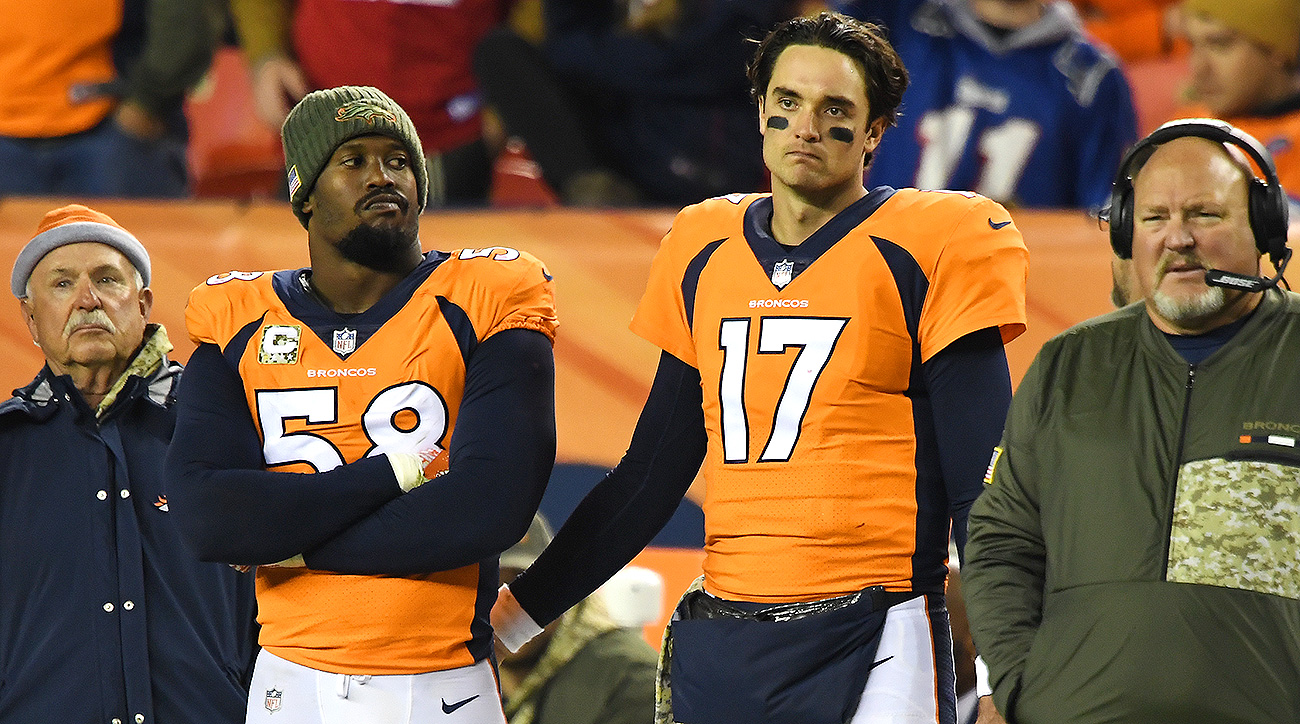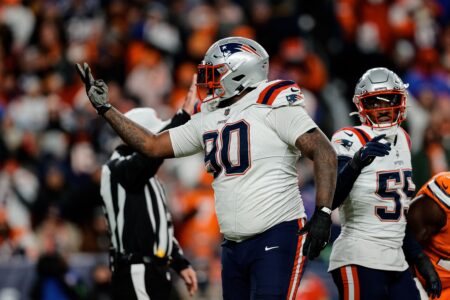- Joined
- Jan 22, 2005
- Messages
- 31,020
- Reaction score
- 15,573
Registered Members experience this forum ad and noise-free.
CLICK HERE to Register for a free account and login for a smoother ad-free experience. It's easy, and only takes a few moments.I don't, I was not in the room.How do you know they didn't?
I don't want you as my tax man.Is that how it works? If one paycheck representing a week's worth of labor in a high tax state becomes two halved amounts, aren't both paychecks still taxable by that state? Effectively the 2nd paycheck is a deferred payment for labor in that state. I don't think you can avoid taxes simply by deferring payment.
Regards,
Chris
I was thinking the same thing. their salary is based on 17 games. Wouldn't they still be taxed 1/17 of their total salary if they play a game in a high tax state regardless of getting their salary weekly on over 36 weeks???Is that how it works? If one paycheck representing a week's worth of labor in a high tax state becomes two halved amounts, aren't both paychecks still taxable by that state? Effectively the 2nd paycheck is a deferred payment for labor in that state. I don't think you can avoid taxes simply by deferring payment.
Regards,
Chris
because players earn money for activities that take place on more than the 17 game daysI was thinking the same thing. their salary is based on 17 games. Wouldn't they still be taxed 1/17 of their total salary if they play a game in a high tax state regardless of getting their salary weekly on over 36 weeks???
Too many of them end up with half the brain they had to start their career.A good number of NFL players only have half a brain
From the players’ side I’d contend that the labor of being an NFL performer is a 365 day a year endeavor, with practice and conditioning being a daily requirement. So the taxation based on playing a game in some particular jurisdiction should be prorated accordingly. I’m sure those states would argue otherwise, don’t know what case law exists but would expect some talented (read, high priced) lawyers have argued it.Is that how it works? If one paycheck representing a week's worth of labor in a high tax state becomes two halved amounts, aren't both paychecks still taxable by that state? Effectively the 2nd paycheck is a deferred payment for labor in that state. I don't think you can avoid taxes simply by deferring payment.
Regards,
Chris
As I noted above, it's not based on games, per se, but on days out of the entire season.From the players’ side I’d contend that the labor of being an NFL performer is a 365 day a year endeavor, with practice and conditioning being a daily requirement. So the taxation based on playing a game in some particular jurisdiction should be prorated accordingly. I’m sure those states would argue otherwise, don’t know what case law exists but would expect some talented (read, high priced) lawyers have argued it.
My understanding - and I gladly admit I may be wrong - is they look at an athlete's "duty days" which are days of work performed, including things like OTAs and training camp, but do not count independent work outs.From the players’ side I’d contend that the labor of being an NFL performer is a 365 day a year endeavor, with practice and conditioning being a daily requirement. So the taxation based on playing a game in some particular jurisdiction should be prorated accordingly. I’m sure those states would argue otherwise, don’t know what case law exists but would expect some talented (read, high priced) lawyers have argued it.
My understanding - and I gladly admit I may be wrong - is they look at an athlete's "duty days" which are days of work performed, including things like OTAs and training camp, but do not count independent work outs.
I remember reading an article about Super Bowl 50, which was played in California. Each team spent about a week on location, so each team got taxed for a week of work. But they weren't merely taxed on what they earned for playing in the Super Bowl, they were taxed on roughly 1/26th of their entire salary for the year.
We tend not to feel sorry for millionaire athletes paying high taxes, but let us not forget there are an awful lot of people associated with professional sports who are not making much money. The assistant locker room attendant or assistant equipment managers who travel with the team still have to obey the same laws.

Who was the idiot in here the argued that rich athletes don't pay any taxes?
How NFL players navigate filing their complex taxes
In 2017 Brock Osweiler was traded from Houston to Cleveland, and then picked up by the Broncos when the Browns cut him after training camp. So where does the quarterback even start when it comes to filing his taxes?www.si.com
Shows the formula and a lot of interesting effects. Vacations during a bye week to a high tax state? Tax bill. Training camp moved from FL to CA due to hurricane? Tax bill. Low-level assistants who travel with the team? Tax bill.
Regards,
Chris












